Water Intrusion Experts in Los Angeles

Fact is… it’s not that easy. Particularly when equipment alone can easily cost into the thousands and hundreds of thousands. Becoming a rain leak detection expert here in Los Angeles means you understand construction and how water moves through a building’s envelope and materials. There are a few self-proclaimed water leak experts in LA, but there is only one Water Intrusion Specialist.
Different Forms of water intrusion
- Wall leaks
- Window and Door Leaks
- Basement Water Intrusion
- Roof Rain Leaks
- Deck Leaking
Water Intrusion Experts in Los Angeles and Wall leaks
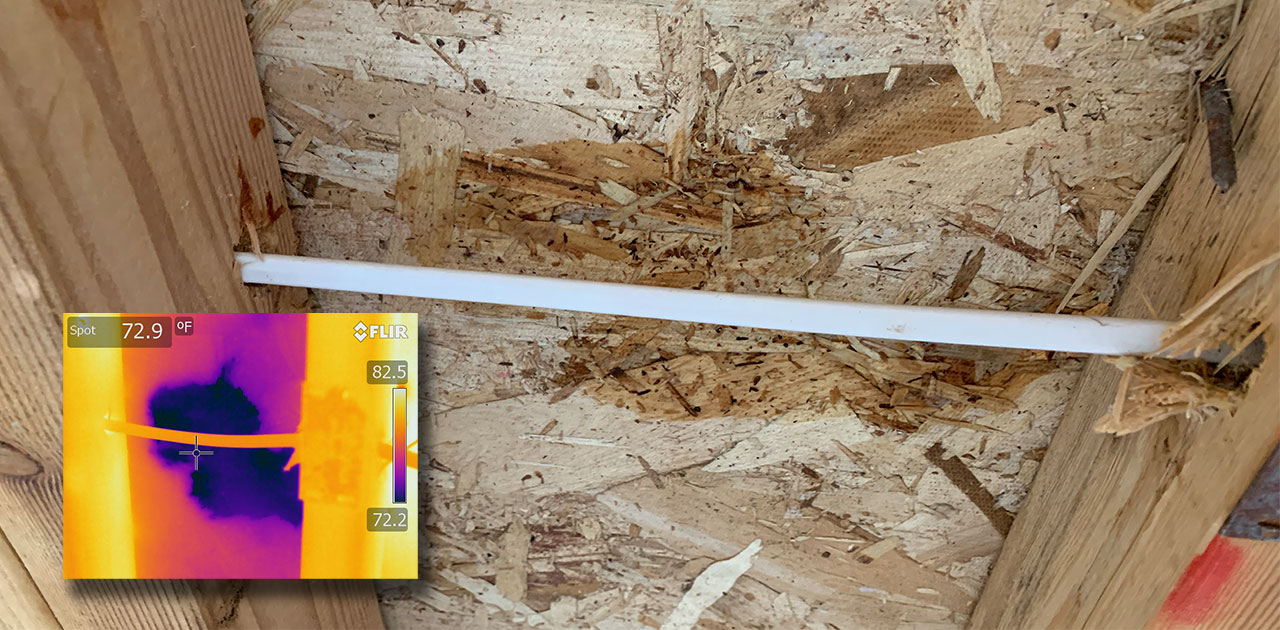
Wall leaking or water which leaks through walls is, in my opinion, the most difficult to detect. As a rain leak specialist here in Los Angeles, I have to admit…once water enters the envelope it can go just about anywhere. Within a wall system, there’s blocking, insulation, building wrap you name it. Water can redirect at a moment’s notice.
Of course, you cant rely on thermography to help locate these sorts of leaks. Thermal imaging for leak detection is a good tool… but for closed wall systems, it’s almost useless.
At the same time, the ASTM has developed a standard for wall leak testing. Indeed… it’s the ASTM E2128. for the most part, it outlines the methods by which a rain leak water intrusion test should be performed on stucco walls and the like.
Window and Door Water Intrusion specialists
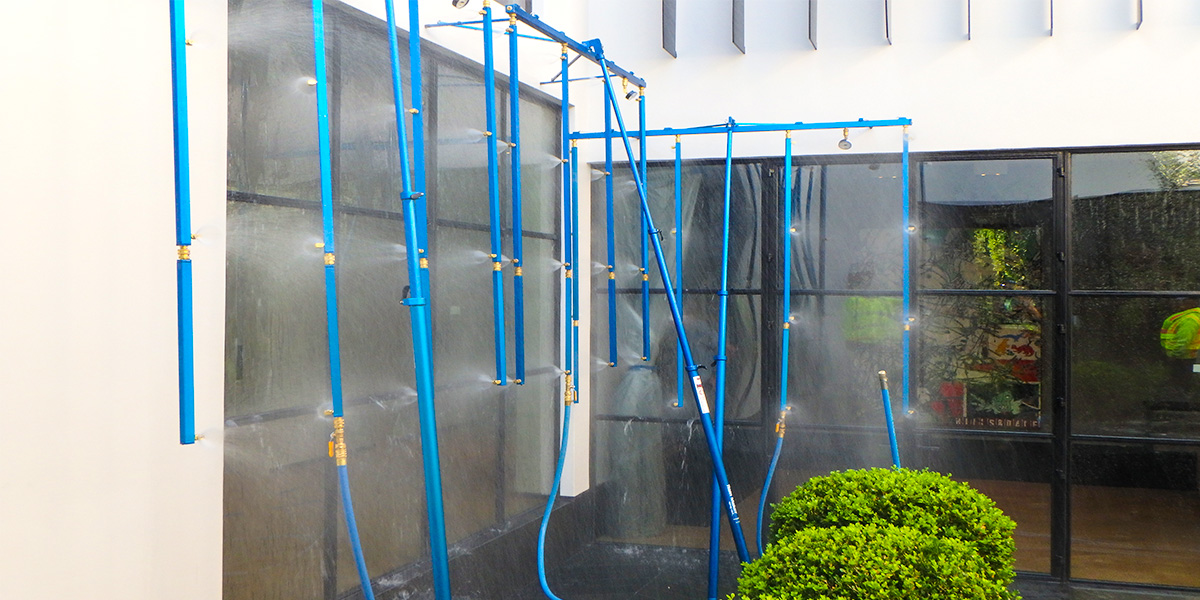
Surprisingly, windows and doors also known as Fenestration products, leak the most during rain. Albeit they are openings into the envelope. Despite this fact, they are, however, designed to resist rainwater leaks. That said, a poorly installed window or door product is bound to leak… eventually. Consequently, there are a bunch of tests that a verified Water Intrusion specialists or Rain leak detection expert can perform to locate leaks in these types of openings.
In particular, is the ASTM E1105 water intrusion test. Of course, it does require the use of specialized calibrated equipment to operate. The E1105 water intrusion test when performed correctly is sure to locate a rain leak into a door or window. Although it’s no secret that Los Angeles somewhat dry most of the year. Regardless, the ASTM test can still be performed in any weather condition. Well, except during actual rainfall.
Basement Water Intrusion
I’m going to be completely honest here… basement water intrusion is not my favorite topic. In fact, I’m not a fan of water leak performance testing for basements. Different from other types of water intrusion testing… basements typically have, well… dirt on the other side of the wall. Why is this difficult to test? Chiefly because the dirt isn’t the object being tested… its the actual wall system. Specifically the waterproofing of the wall.Basement wall leaks are pretty common here in Los Angeles. Let’s face it… the buildings which have basements are pretty old. Thus, unless updated, the walls waterproof is also old. Most likely deteriorated. Getting to the wall is half the battle. Most Angelinos don’t wish to have their yard excavated just to perform a water test on an old deteriorated system. At this point, you may as well just replace the waterproofing as new.
On the other hand, there are in fact some cases where testing a basement wall is necessary for rain leak detection. For example litigation cases. Or, when a building owner needs to rule out specific contributing conditions. Otherwise, I almost never performed these types of tests. Although we are water intrusion specialists, we’re not supermen.
Roof Rain leak detection experts
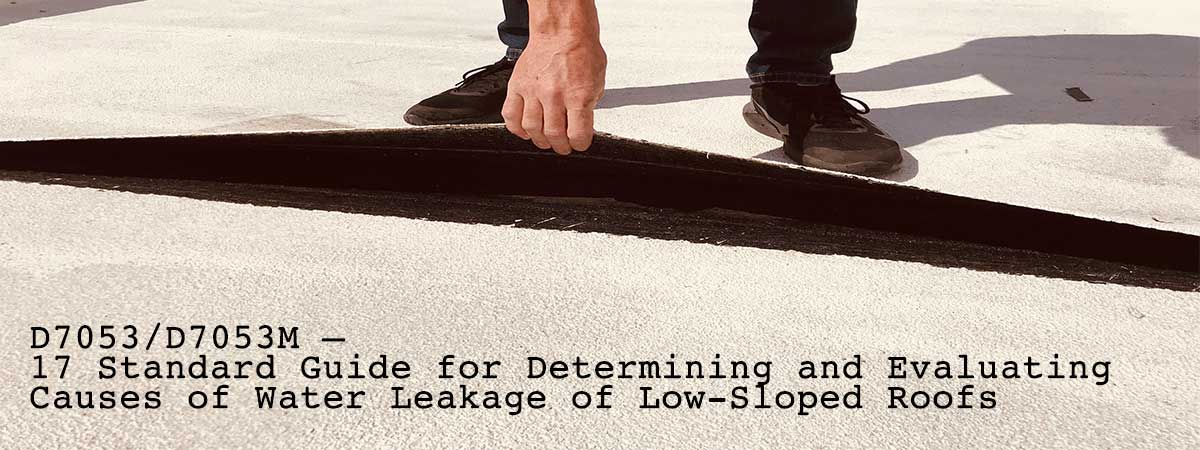
Fortunately for you, we have the ability to diagnose and locate roof leaks here in Los Angeles. As water intrusion specialists and roof leak specialists, we have the ability to find roof leaks. No matter where the leaks hide… we have the equipment, the technology, and experience to locate all types of roof leaks caused by rain.
Whether it’s a flat roof, pitched concrete, or clay tile roof our crew consisting of experienced water intrusion experts and roofing contractors have you covered.
Deck Leaking
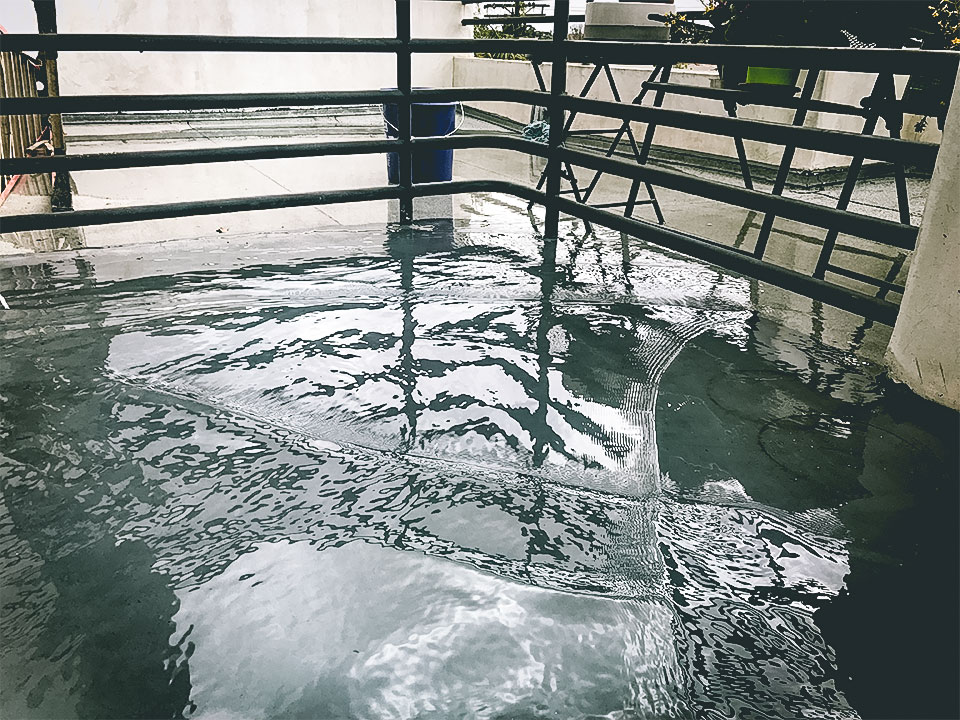
Of all the different types of water intrusion issues, I’d say testing decks for water leaks has to be my favorite. The ASTM D5957 dictates the methods by which a deck leak test must be performed. On the other hand, of course, there is the chance that the deck itself does not qualify for this test. Along with the testing standards by which walk-on decks are to be rain leak-tested, there are also minimum requirements that the deck must adhere to.
For instance, due to the hydrostatic load imposed onto the deck, the deck may not be sufficient to withstand such weight due to damaged wood members. Or, the walls adjacent to the deck may have a weep screed to low to the deck.
According to the ASTM 5957, the deck is broken up into sections. These sections are tested individually, and during this test… inspected from the underside for water penetration. As leak detection experts this is the best method available to discover water leaks in decks. We are Water Intrusion Experts in Los Angeles. Decks that leak during rain are just one of the many water intrusion tests we perform.
Hiring a Water Intrusion Specialist in Los Angeles
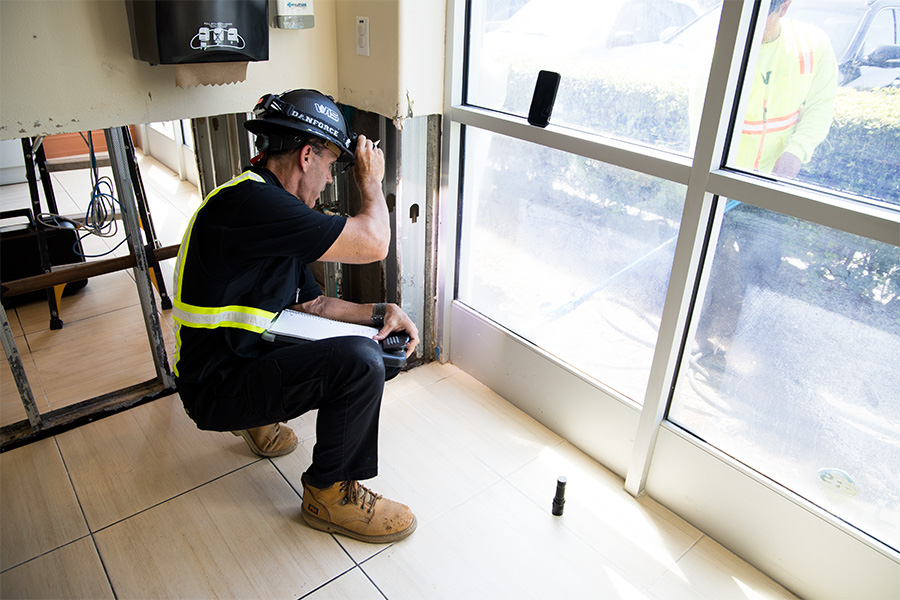
If you’re thinking of Hiring a Water Intrusion Specialist in Los Angeles, there are a few things you need to consider. First off… you need to make sure the company is a testing agency. Not chuck-in-a-truck armed with a water hose and thermal imaging camera. Secondly, the testing agency should be exactly that… a company that follows legitimate testing standards like the ones set by ASTM and AAMA. Otherwise, you may as well hire Chuck. Tests performed by water intrusion testing agencies or water intrusion experts in Los Angeles must be able to be duplicated. That is to say, the tests performed should follow a standard that can be reproduced in the event you go to court.
Thermal imaging infrared cameras used to detect rain leaks
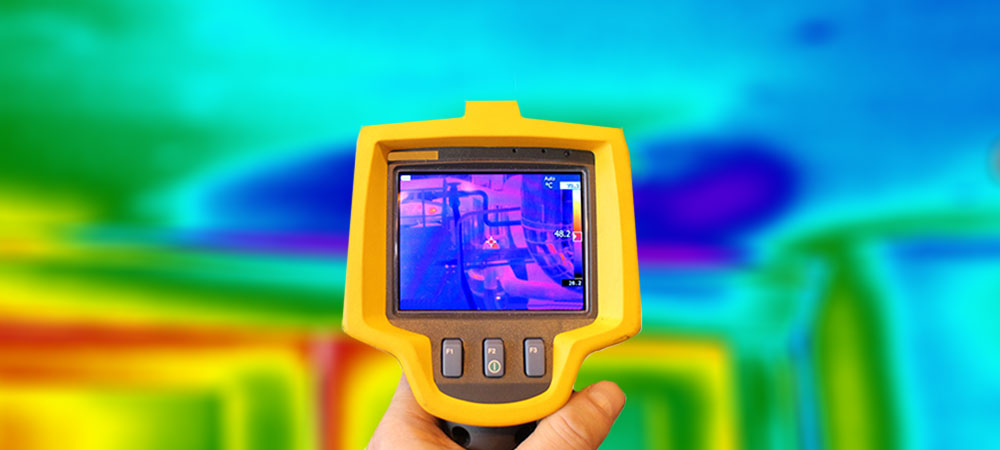
Even though we are experts ins the application of Thermography, we are not strong advocates on the use of thermal imagers as the “sole” piece of equipment to detect leaks in buildings. In fact, we use thermography practices here in Los Angeles during tests as just an additional tool. Thermal imaging equipment (which is a fancy way to say infrared cameras) are fantastic for helping the test technician and Test Manager to know if the test performed is producing anything significant. Other times, the camera helps us to see extremely small leaks in areas difficult to detect by the naked eye, such as in building insulation for example.
Thermography also carries with it the ability to also be inaccurate at times. Its inaccuracies are seen as false positives or false negatives. What creates these false readings? Well, metal for one and even cool air movement within a wall can lead to falls readings. An untrained or inexperienced operator can easily mistake these conditions for what appears to be active leaks or water; with that said relying only on thermographic practices is not recommended and some amount of destructive investigation should be performed in conjunction with thermography and infrared scanning for water intrusion.
